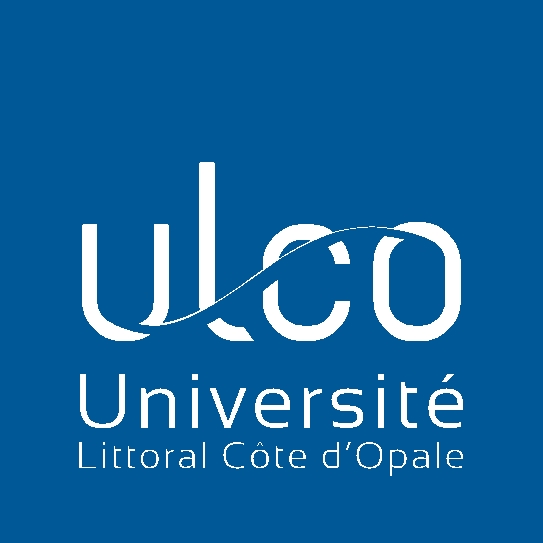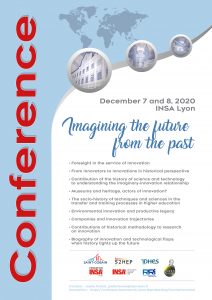Jean Baptiste Say Conference
« Imagining the futur from the past »
December 7 and 8, 2020
Organized by:
Laboratoire S2HEP and Chaire Saint GOBAIN – INSA Lyon – « Ingénieurs Ingénieux »
Jean-Baptiste Say International Society
Innovation Research Network
Keynote speakers:
Michel Cotte : Enlightening modernity: a look back at some historical situations of technical innovation, the case of Marc Seguin
Benoit Godin : Theology of innovation
Navi Radjou : A Non-Linear Perspective on Progress: The Key to Sustainable Development
(Français)
Contemporary Western societies are marked with the seal of « youthism ». The hunt for wrinkles is open, the replacement of seniors by the youngest privileged, mass consumption and accelerated innovation has become the rule. In short, we are in a society that values everything that is new compared to the old. This underlying trend is not without implication on the place given to the history of science and technology in our society.
How many times have we heard « yes but that is ancient history », as if the past had no value for thinking about our present and, even more, our future? This conference takes place regarding this context.
Precisely, it is a twofold challenge. On the one hand, it involves questioning the history of science and technology to shed light on the understanding of innovation process and, on the other hand, making this knowledge a “toolbox” to innovate. In this context we will specifically focus on the following questions:
- By what means does the history of science and technology contribute to the development of knowledge on innovation processes?
- What are the key concepts and main contributions of the history of science and technology to innovation?
- Contribution of the history of science and technology to the analysis of innovation trajectories.
- Which place for the history of science and technology in innovation training systems?
- How can heritage help to innovate? Who are the actors and what are their motivations? How does the heritage-building process of innovations take place? Innovating yesterday and today: common points and differences?
- Does refusing to consider the past lead to narrow the field of possibilities?
- Does our difficulty in developing technical culture stem from the too timid place we give to the history of techniques in our society?
- How can we use our understanding of the past with the history of science and technology to imagine the future?
Special sessions
- Foresight in the service of innovation: Vincent Boly (vincent.boly@univ-lorraine.fr), Laure Morel (laure.morel@univ-lorraine.fr)
- From innovators to innovations in historical perspective: Sophie Boutillier (Sophie.Boutillier@univ-littoral.fr), Cédric Perrin (cp2002@orange.fr)
- Contribution of the history of science and technology to understanding the imaginary-innovation relationship: Marianne Chouteau (marianne.chouteau@insa-lyon.fr)
- Museums and heritage, actors of innovation?: Céline Nguyen (celine.nguyen@insa-lyon.fr)
- The socio-history of techniques and sciences in the transfer and training processes in higher education: Catherine Radka (catherine.radka@lecnam.net), Jean-Claude Ruano-Borbalan (jean-claude.ruanoborbalan@lecnam.net).
- Environmental innovation and productive legacy: Romain Debref (romain.debref@gmail.com)
- Companies and innovation trajectories: Blandine Laperche (blandine.laperche@univ-littoral.fr), Didier Lebert (didier.lebert@ensta-paristech.fr)
- Contributions of the historical methodology to research on innovation: Pierre Barbaroux (pierre.barbaroux@ecole-air.fr)
- Biography of innovations and technological flops: when history lights up the future: Joelle Forest (joelle.forest@insa-lyon.fr), Loïc Petitgirard (loic.petitgirard@lecnam.net)
- Thinking about the meaning of innovation: Joelle Forest (joelle.forest@insa-lyon.fr)
Content of the conference
The conference will offer plenary sessions with guest speakers, special sessions around key themes, poster sessions dedicated specifically to doctoral students at the start of their thesis.
The conference will be coupled with the General Assembly of the RNI. A round table will conclude the two days.
These two days will be followed by a visit to a museum (by reservation) and may allow participants to extend their stay in Lyon to take advantage of the Festival of Lights.
**** Due to the health situation following COVID-19, the conference will take place at a distance! ****
Important dates:
Communication summary sent before August 31, 2020
Abstracts and full articles will be submitted via email address: side@univ-littoral.fr. A copy will also be sent to the session manager(s).
They must register either in one of the main questions of the conference, or in a special session.
Format of the expected summary: 500 to 1000 words in French or English in Word format, Times New Roman 12-point font and single spacing.
The following information should be included in the abstract:
- Title of the paper
- Names and affiliations of the authors (University, Laboratory …)
- Telephone, email address, postal address …
- Session / question in which the submitted communication is registered
- 5 Keywords in French and English
- The proposed communication fits in which workshop or answers to which question of the conference
Language: English or French
Scientific committee response no later than September 15, 2020
Registration for the conference before September 15, 2020 here
Sending final papers by the end of October 2020 at the latest.
Word format, Times New Roman 12-point font and single spacing. The full text, bibliography and appendices included will be between 6000 and 8000 words.
A selection of the best communications will result in
- 1 issue of the journal Technology and Innovation
- 1 edited book (Business & Innovation collection, Peter Lang, Brussels)?
Scientific committee
Barbaroux Pierre, Ecole de l’air
Boly Vincent, ENSGSI, Université de Lorraine, ERPI
Boutillier Sophie, Université du littoral, ULCO
Chouteau Marianne, INSA Lyon, S2HEP.Forest Joelle, INSA Lyon, S2HEP
Laperche Blandine, Université du littoral, ULCO
Leachopier Nicolas, Université Lyon1, S2HEP
Lebert Didier, Institut Polytechnique de Paris, ENSTA
Morel Laure, ENSGSI, Université de Lorraine, ERPI
Nguyen Céline, INSA Lyon
Loic Petitgirard, CNAM, HT2S
Perrin Cédric, Université d’Evry, IDHE.S
Romain Debref, Université de Reims
Ruano-Borbalan Jean-Claude, CNAM, HT2S
Uzunidis Dimitri, Université du littoral, ULCO
Steering committee
Romain Debref, Université de Reims
Vanessa Casadella, Université de Picardie
Dave Mobhe, Université du Littoral
Chouteau Marianne, INSA Lyon, S2HEP
Nguyen Céline, INSA Lyon
Joelle Forest INSA Lyon, S2HEP
➤ Register for the Say Conference
Sending final papers by the end of October 2020 at the latest

